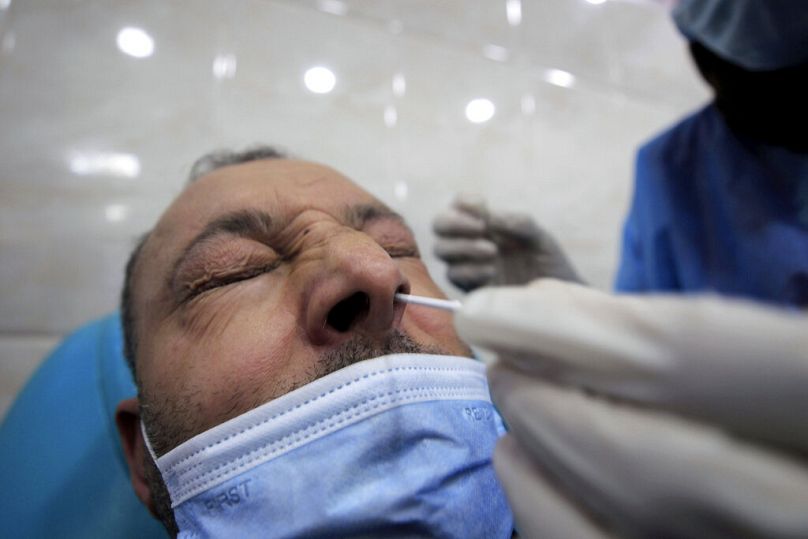A 10-second COVID-19 test without a nasal swab - how does that work?
Scientists at a university research centre in Turkey claim they have developed an ultra-rapid coronavirus test with 99% accuracy that can return results within 10 seconds - all without needing to take a nasal swab.
The Diagnovir, developed by researchers at Bilkent University, is a diagnostic kit said to use nanotechnology to detect COVID-19 in a patient.
First, a swab is taken from the patient's mouth before being mixed with a solution and added to a pathogen detection chip.
"It detects the presence of pathogens with high accuracy by receiving a fluorescent signal," said Ali Aytac Seyman, a researcher at the National Nanotechnology Research Centre (UNAM).
He then pointed out that, unlike the widely-used polymerase chain reaction (PCR) test, which detects specific genetic material in a sample before amplifying it, the Diagnovir "focuses on the existence or non-existence of the virus using advanced optical methods."
This, he says, can give a patient a positive result within 5-10 seconds, but would take up to 20 seconds if the result is negative. A PCR test, meanwhile, can take much longer.
The researchers are now aiming to get approval from Turkish authorities to begin mass-producing the kits within the next two months. They hope these will eventually replace PCR tests.
"Finding out rapidly that a person is [COVID-19] positive to then quarantine them is very important to bring the pandemic under control," Bilkent University Rector Abdullah Atalar told Anadolu Agency. He then suggested that similar technology could also be used to detect other coronaviruses.
Has nanotechnology been used to detect coronaviruses before?
Yes, and other experts around the world have been using this line of research to develop their own rapid tests for COVID-19.
"The coronavirus is a particle with a diameter of 150 nanometres," said Atalar, who added that UNAM researchers had been working on nanoparticles for years. "This is exactly their field of expertise. After the first cases were reported in Turkey, they started working on the project."
In 2019, scientists in South Korea also published details on using gold nanoparticles to test for MERS-CoV, the coronavirus that causes Middle East respiratory syndrome (MERS). Such a test takes 10 minutes for the results to be visible and can be carried out in the early stages of the disease.
Using this logic, researchers from the University of Maryland School of Medicine and University of Naples Federico II have separately conducted their own studies to create a test for COVID-19.
What sort of tests are currently being used?
The PCR test is said to be the gold standard for COVID-19; however, results can take some time as samples must be sent to a lab for analysis with specialist equipment.
More recently have been the trialling of lateral flow tests, which are supposed to give a patient a COVID-19 test result within 30 minutes. There have, however, been concerns about the accuracy of such a test, and some are advised not to take them.












